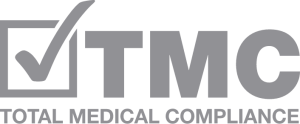What is information blocking?
Anything a healthcare provider knows is likely to interfere with the ability of a patient or other authorized person(s) to access, exchange, or use electronically protected health information (ePHI).
What makes this different from patient access under HIPAA?
If you keep electronic records and a patient requests an electronic copy, the Information Blocking Rule requires that you provide it electronically. However, you are not required to buy new software or put new systems in place.
What if I do not have the technology or cannot respond to a patient’s request?
You must respond with the information as requested unless one of the 8 exceptions applies. For example, the Content and Manner exception would apply if you do not have the exact electronic format requested. You would be able to provide the records to the patient in another agreed-upon electronic format. Be sure to document each time an exception is used.
| Preventing Harm | Protecting Privacy |
| Protecting Security (connection not secure) | Infeasibility (state of emergency, etc.) |
| Health IT Performance (EHR is down) | Content and Manner (form and format) |
| Fees (what/who can be charged) | Interoperability (software negotiation) |
| For more details visit: www.healthit.gov/topic/information-blocking | |
What should I do to prepare?
Are there penalties for information blocking?

Total Medical Compliance
6124 Creft Circle
Indian Trail, NC 28079
Phone: (888) 862-6742
Fax: (866) 875-3809
©2023 Total Medical Compliance

Total Medical Compliance
6124 Creft Circle
Indian Trail, NC 28079
(888) 862-6742
Fax (866) 875-3809
©2022 Total Medical Compliance